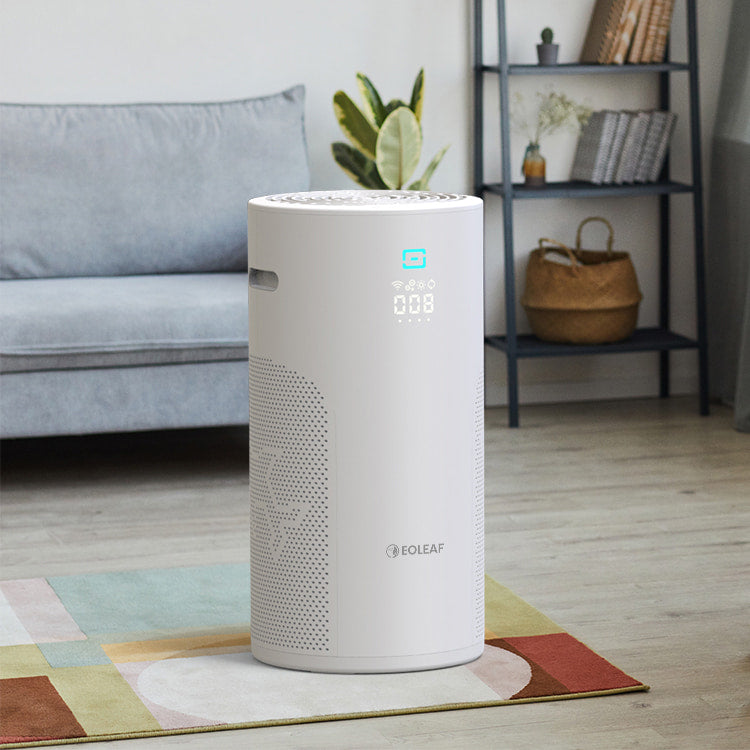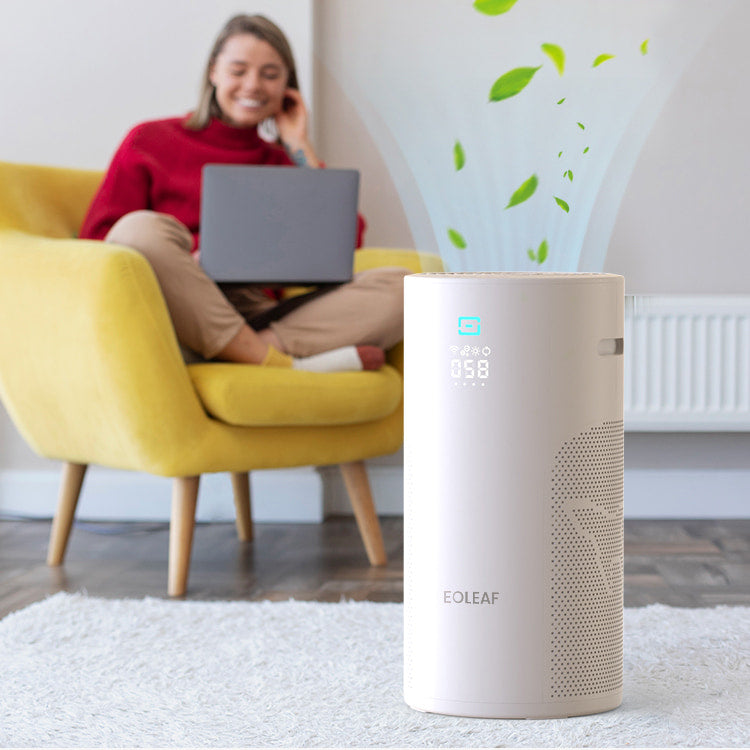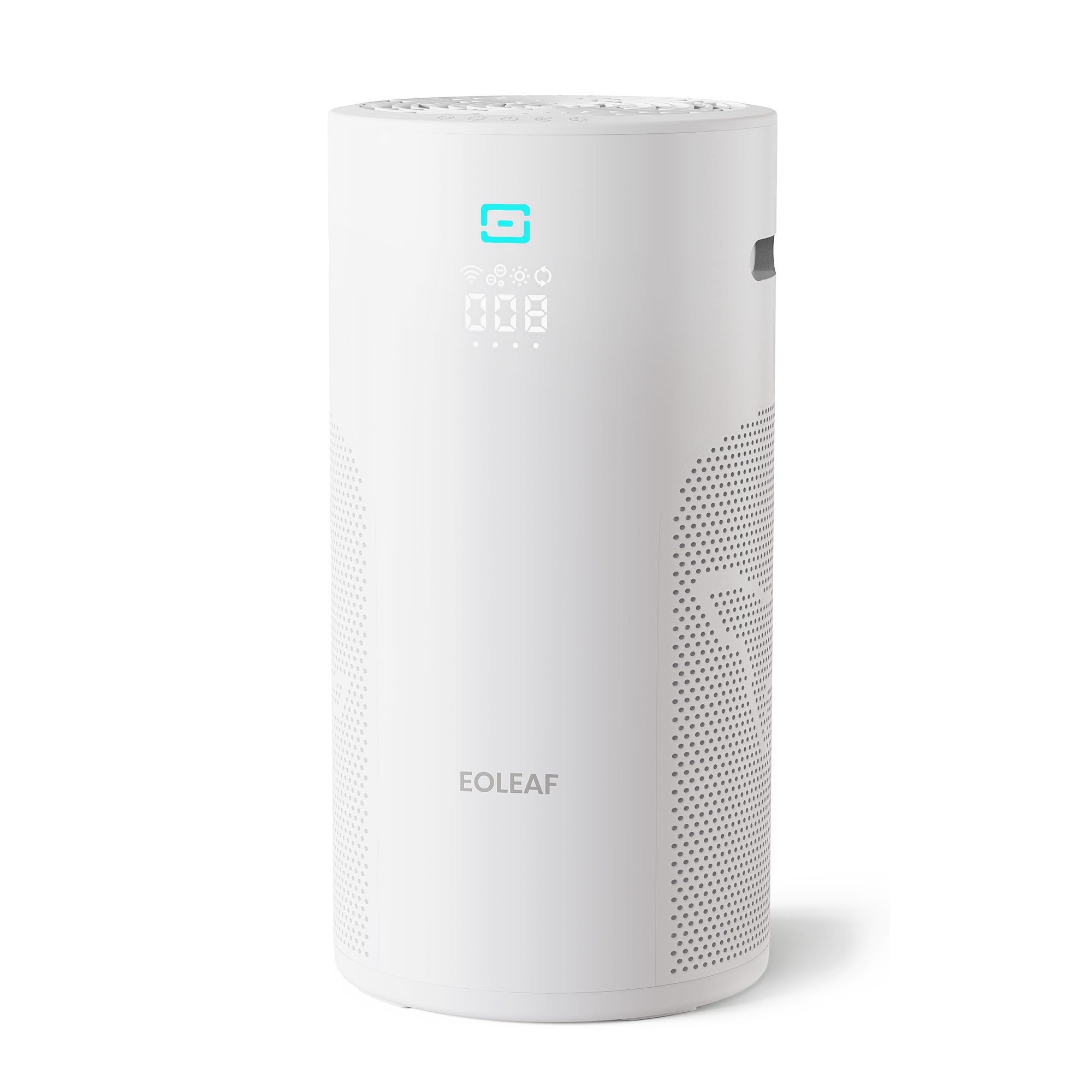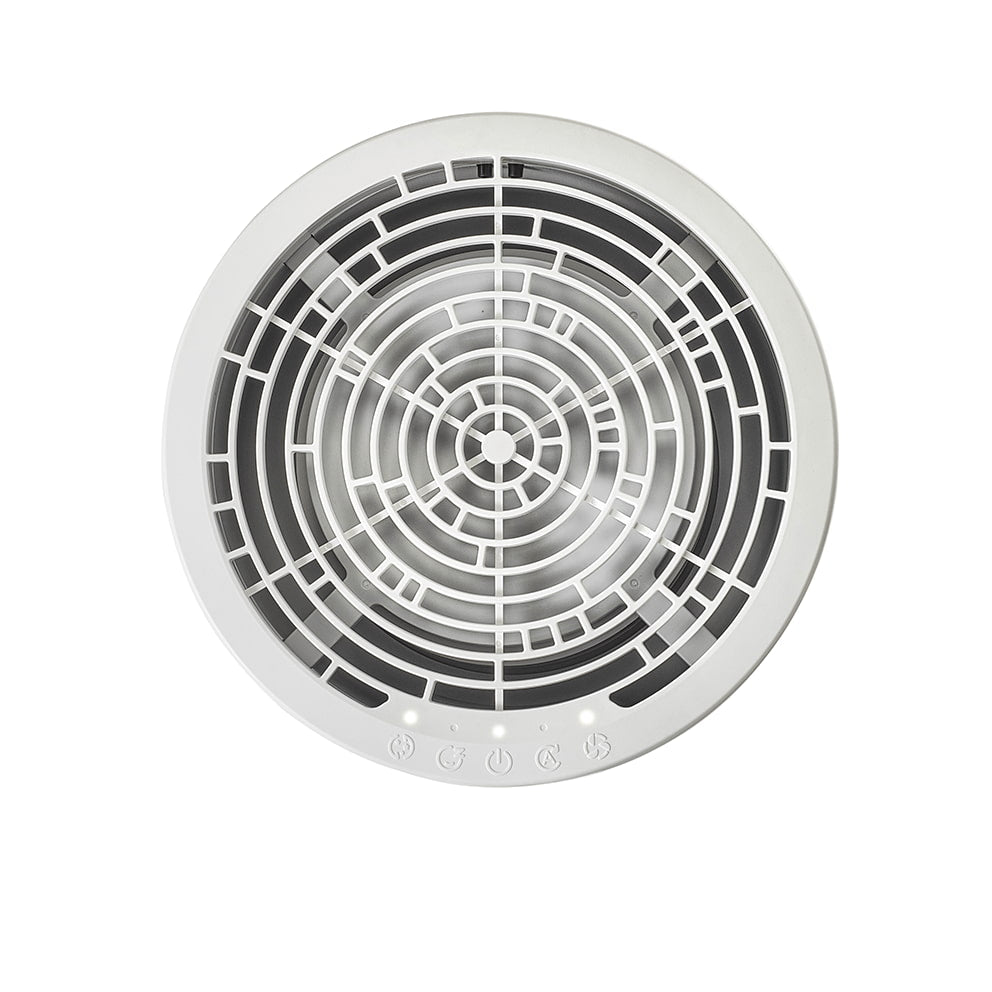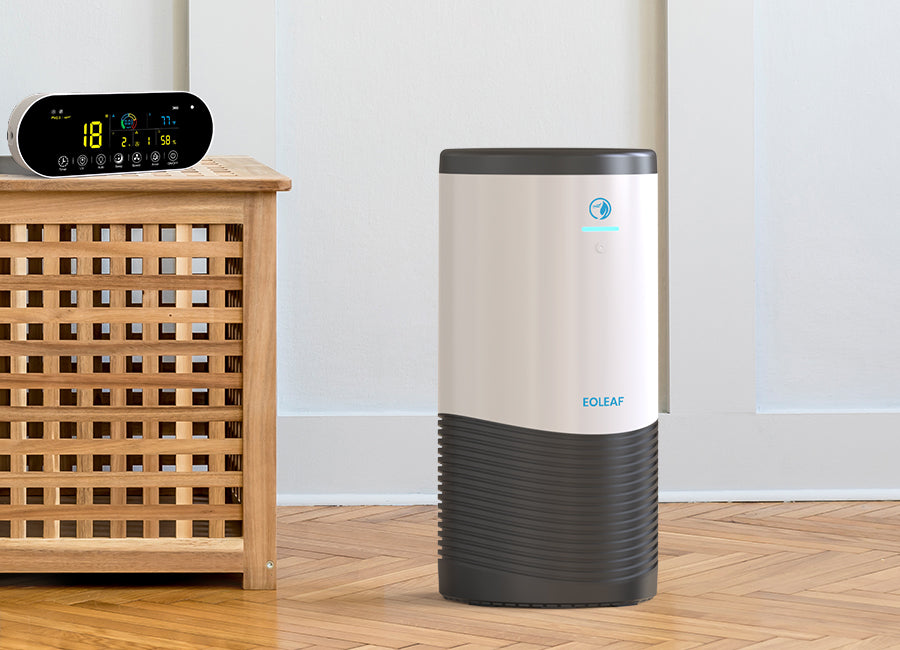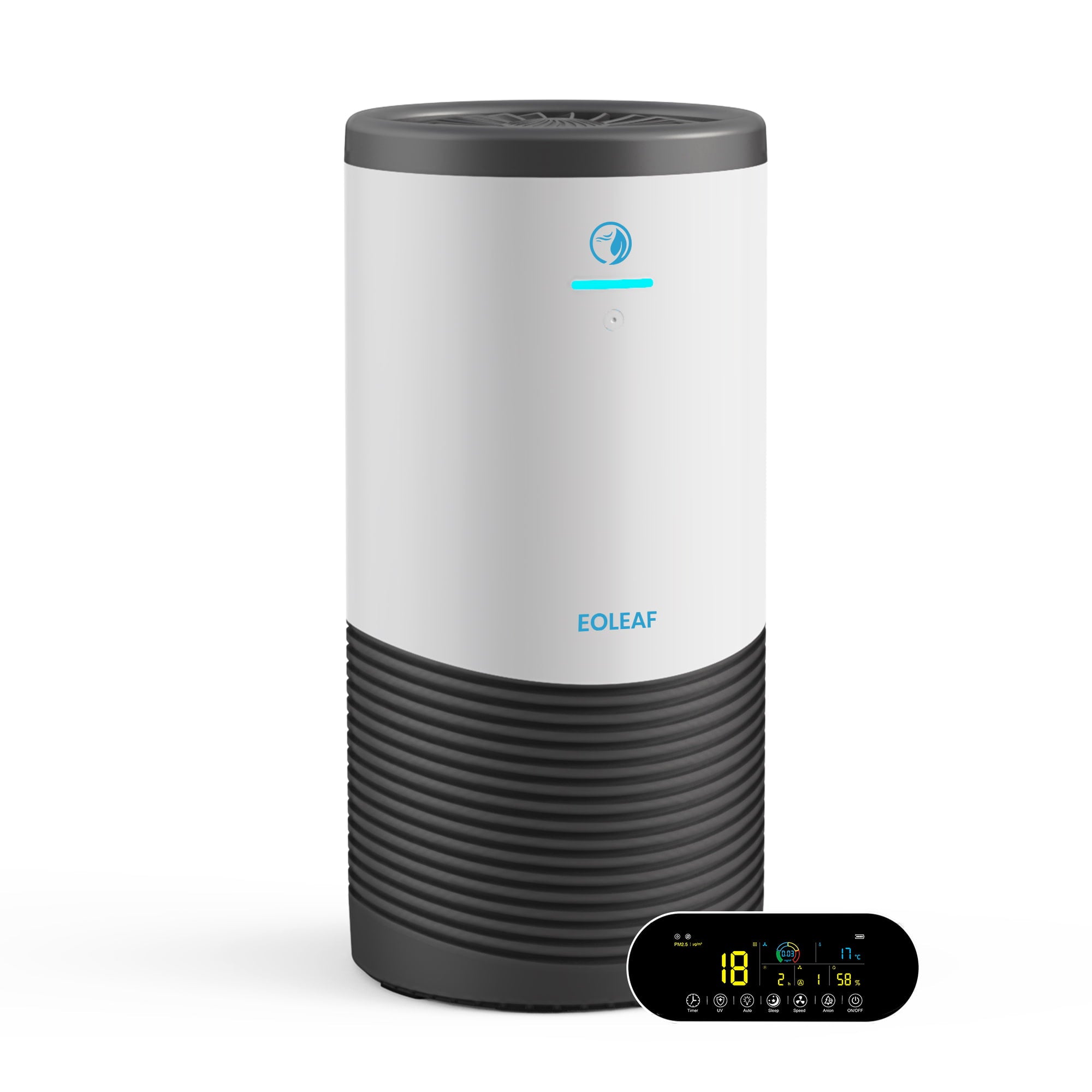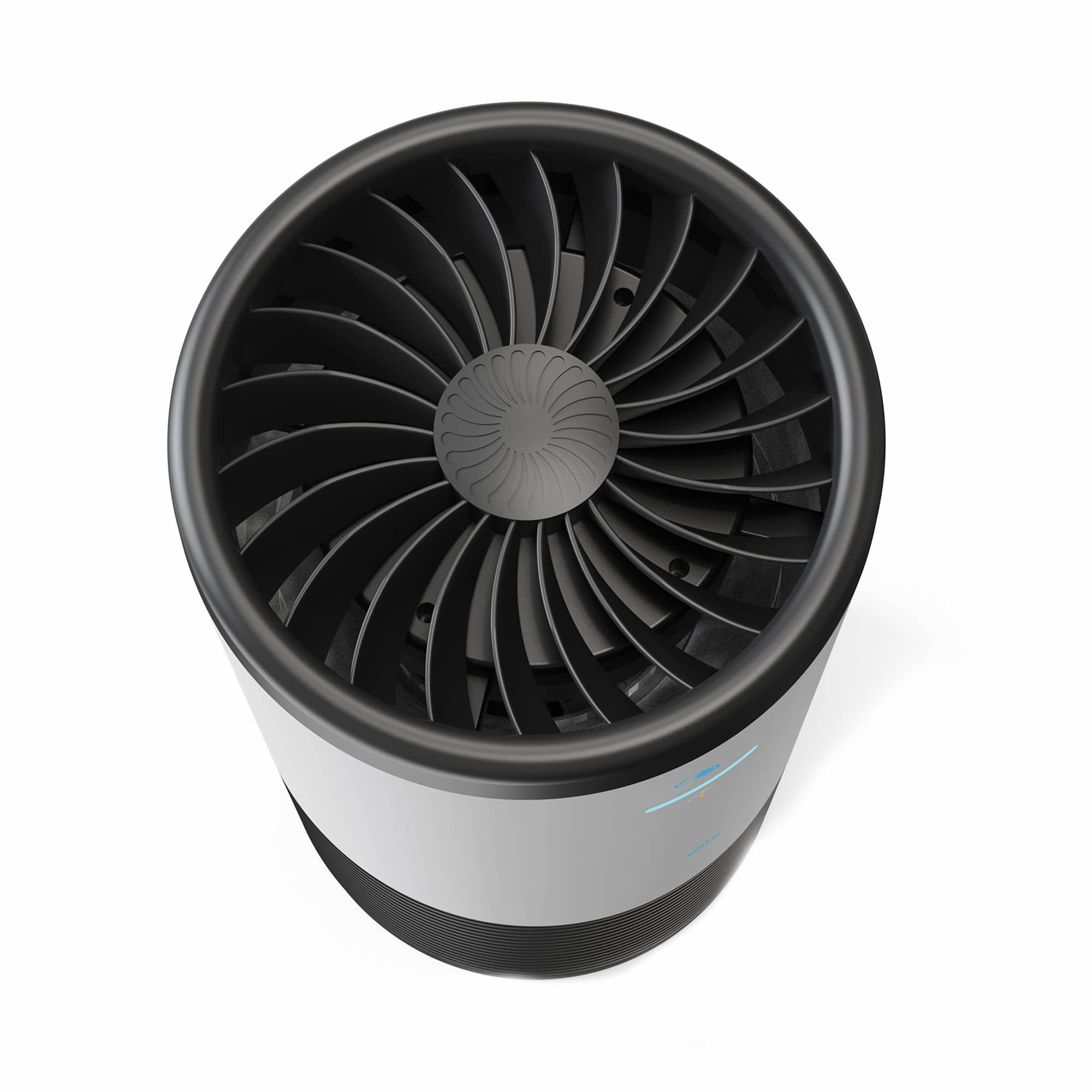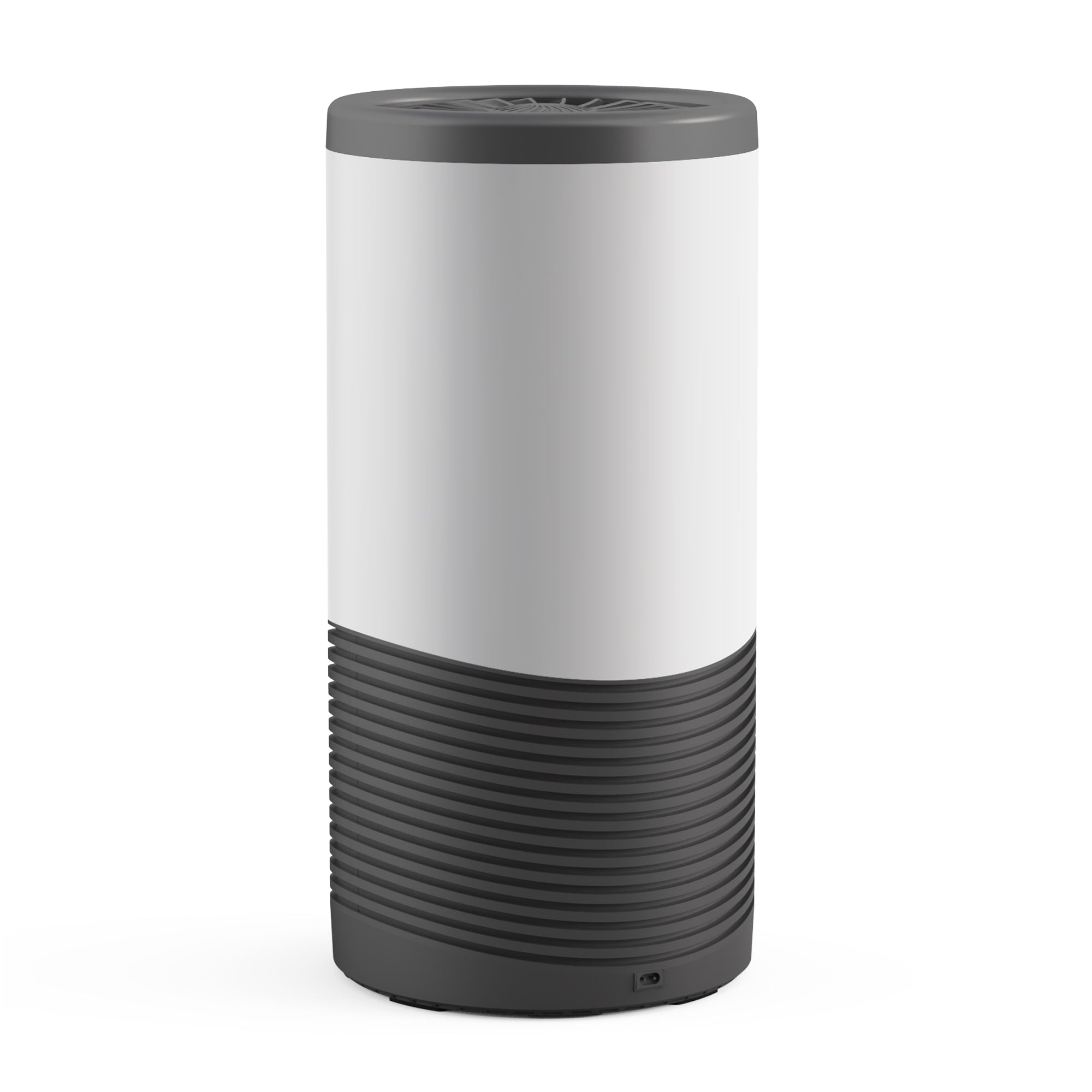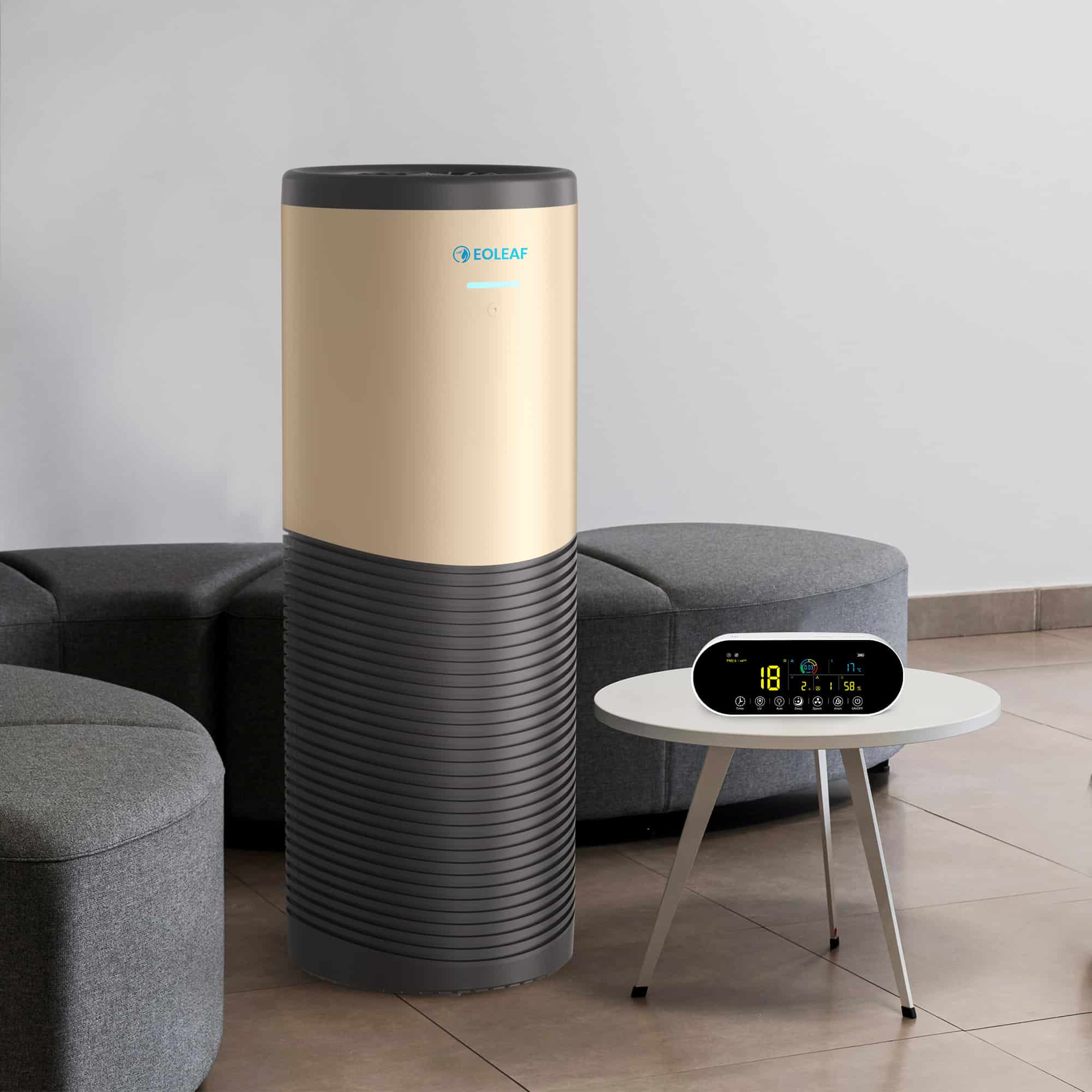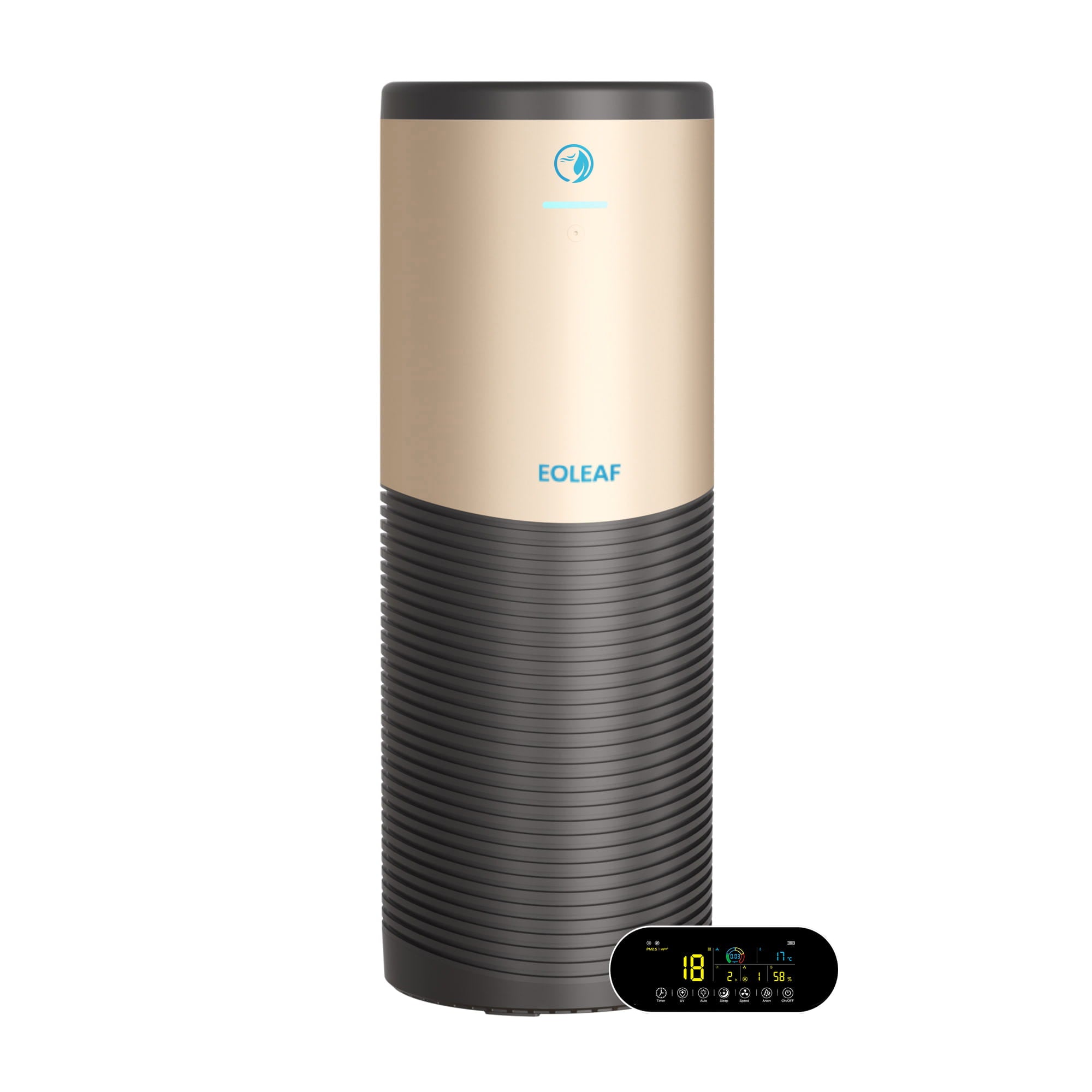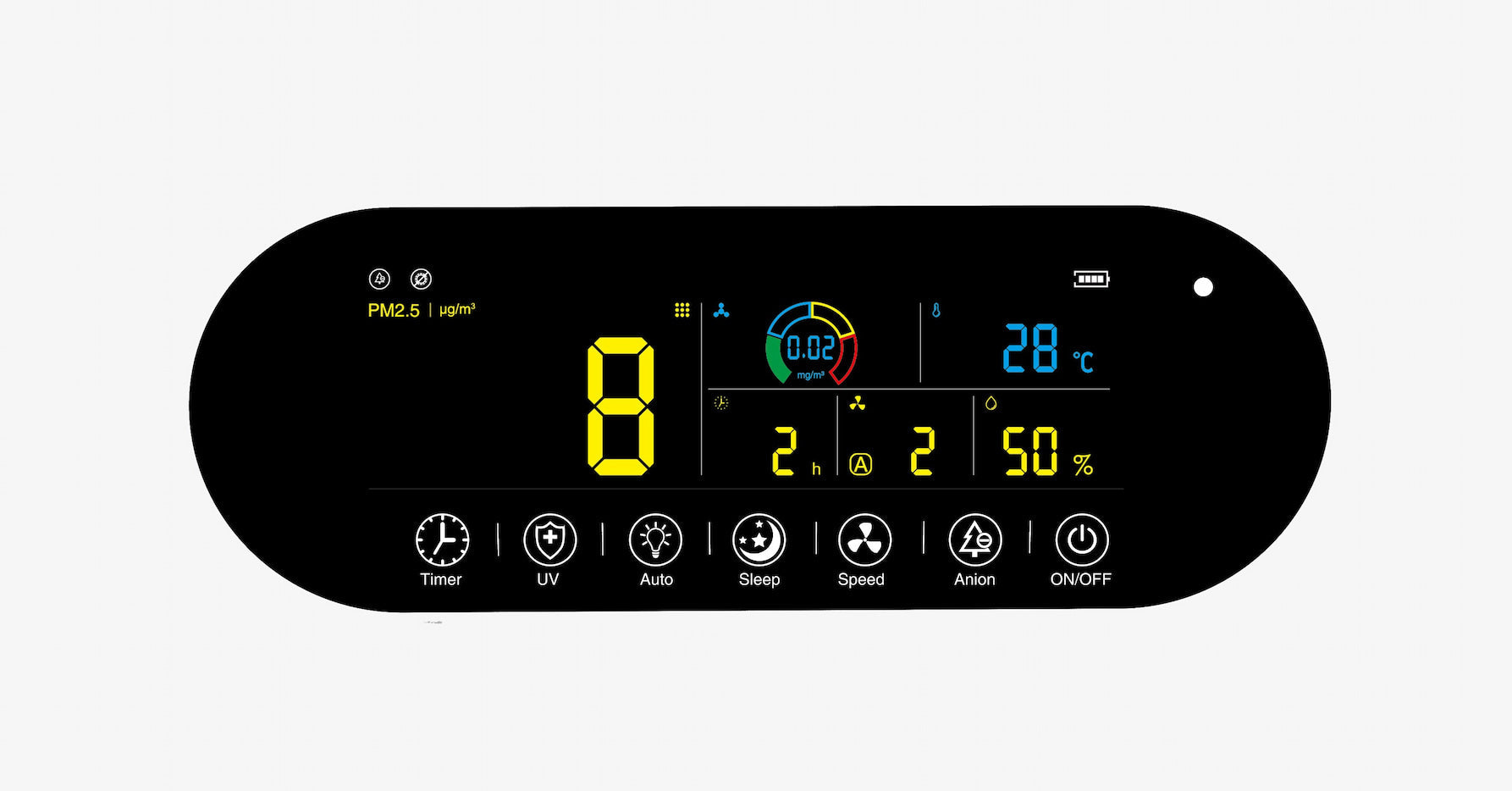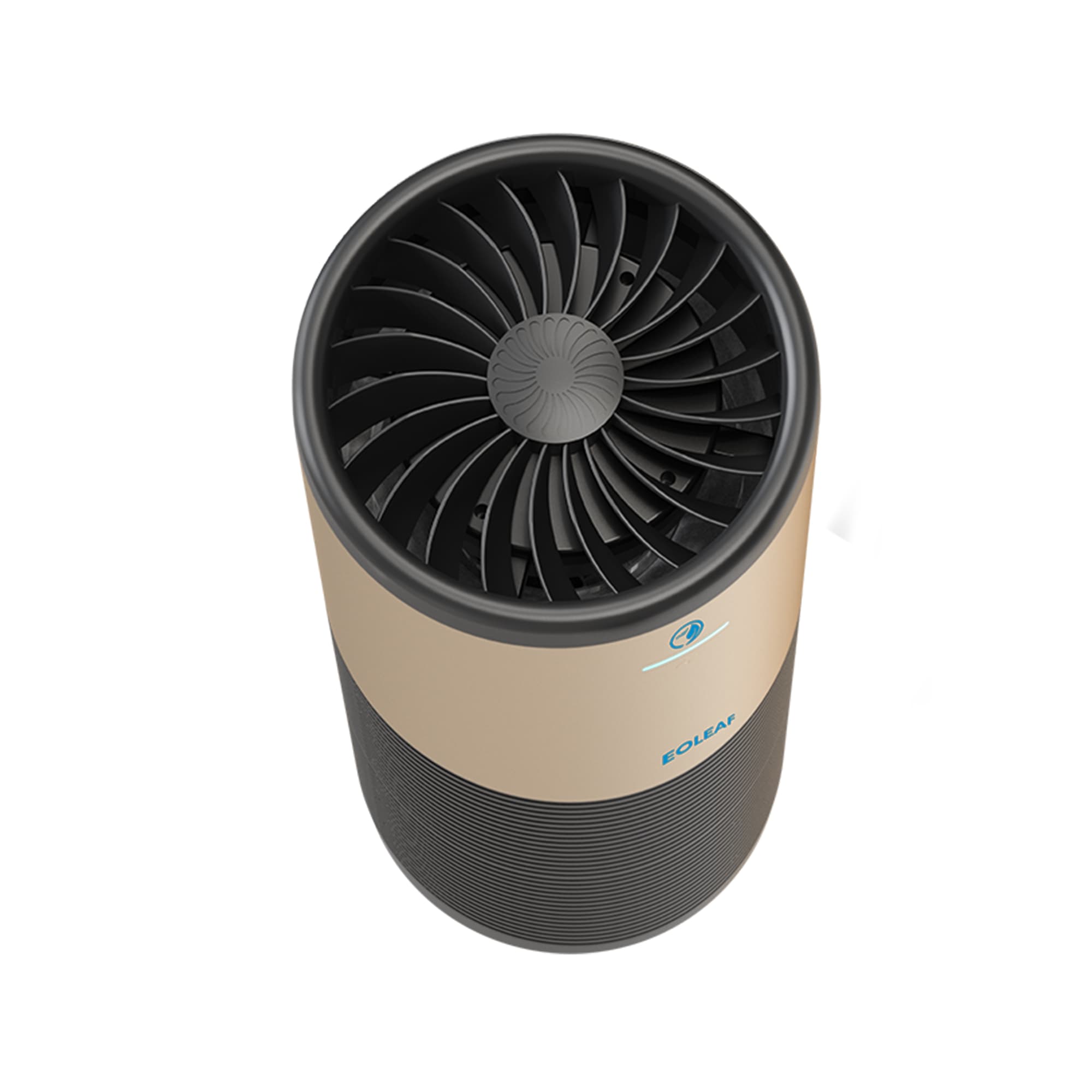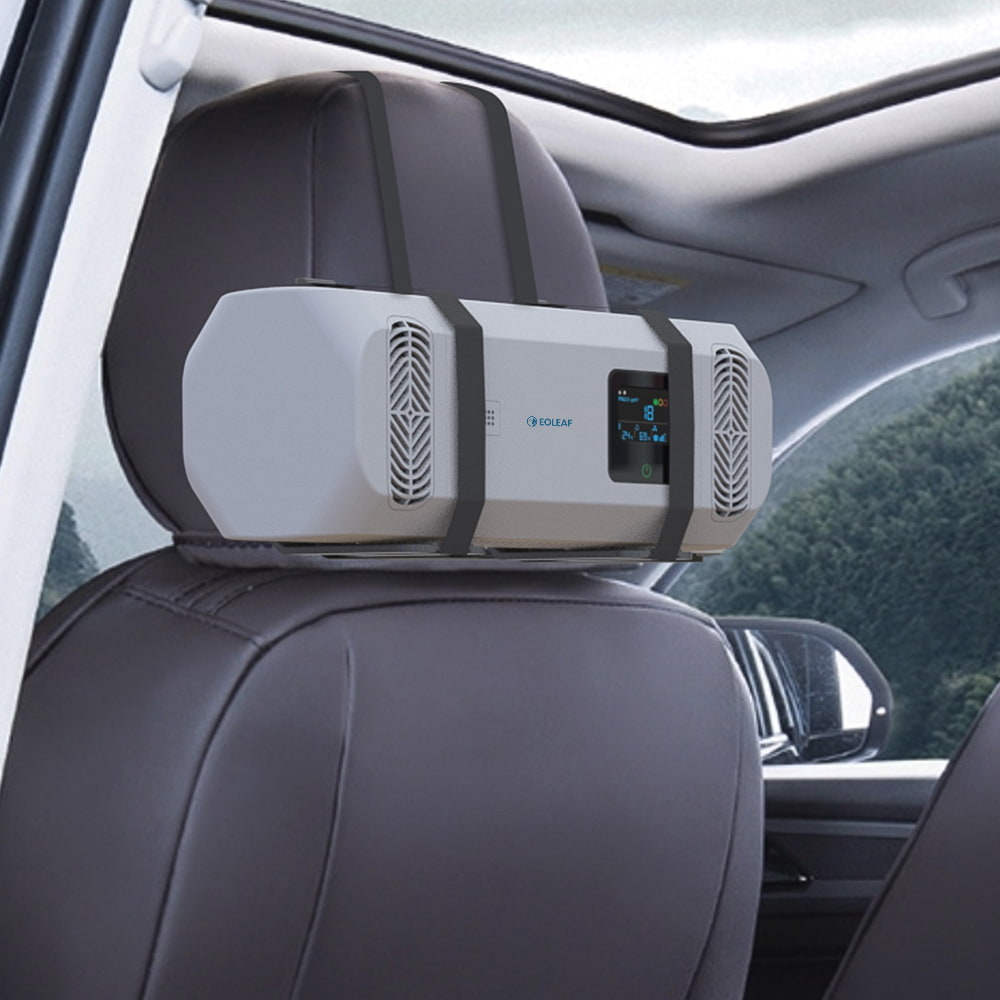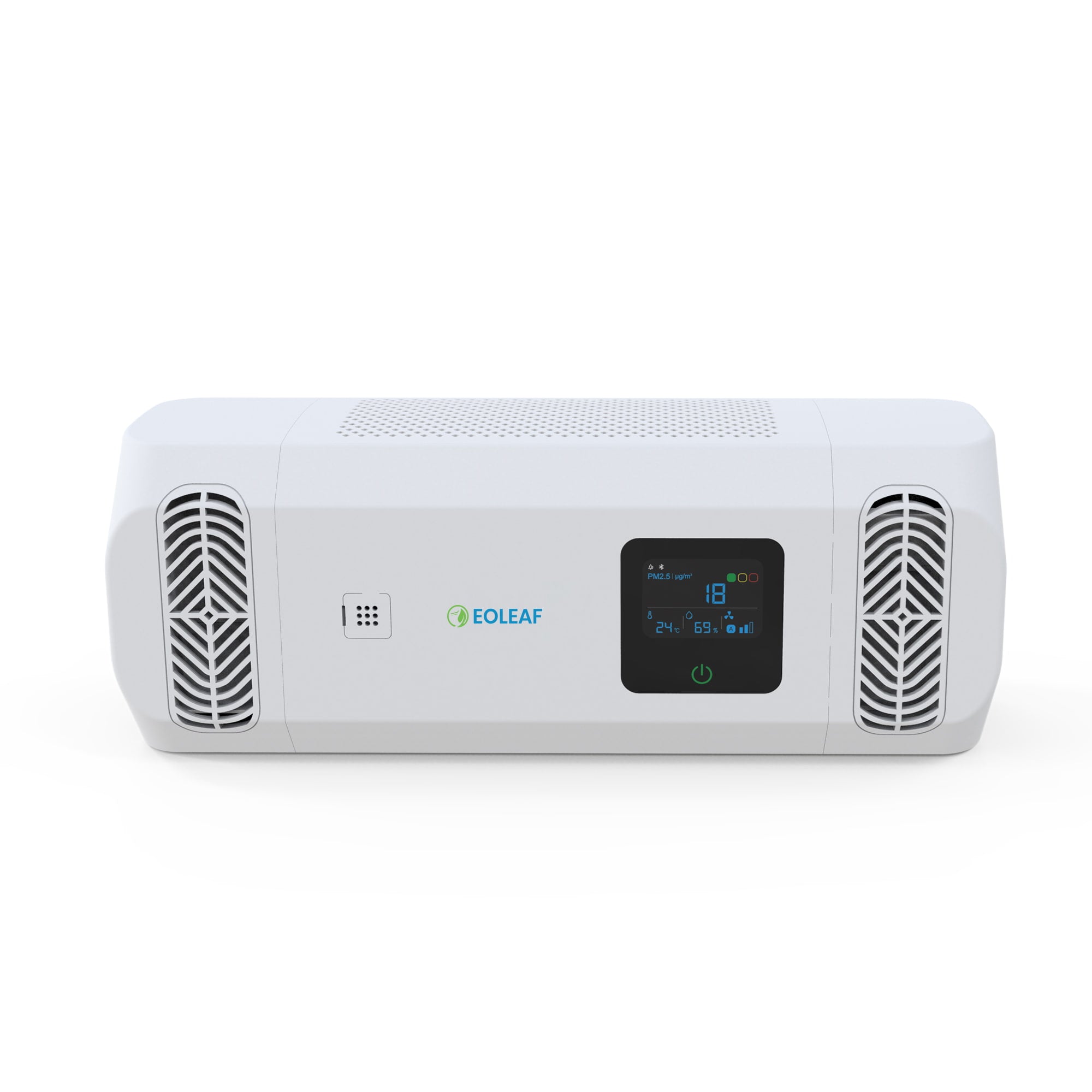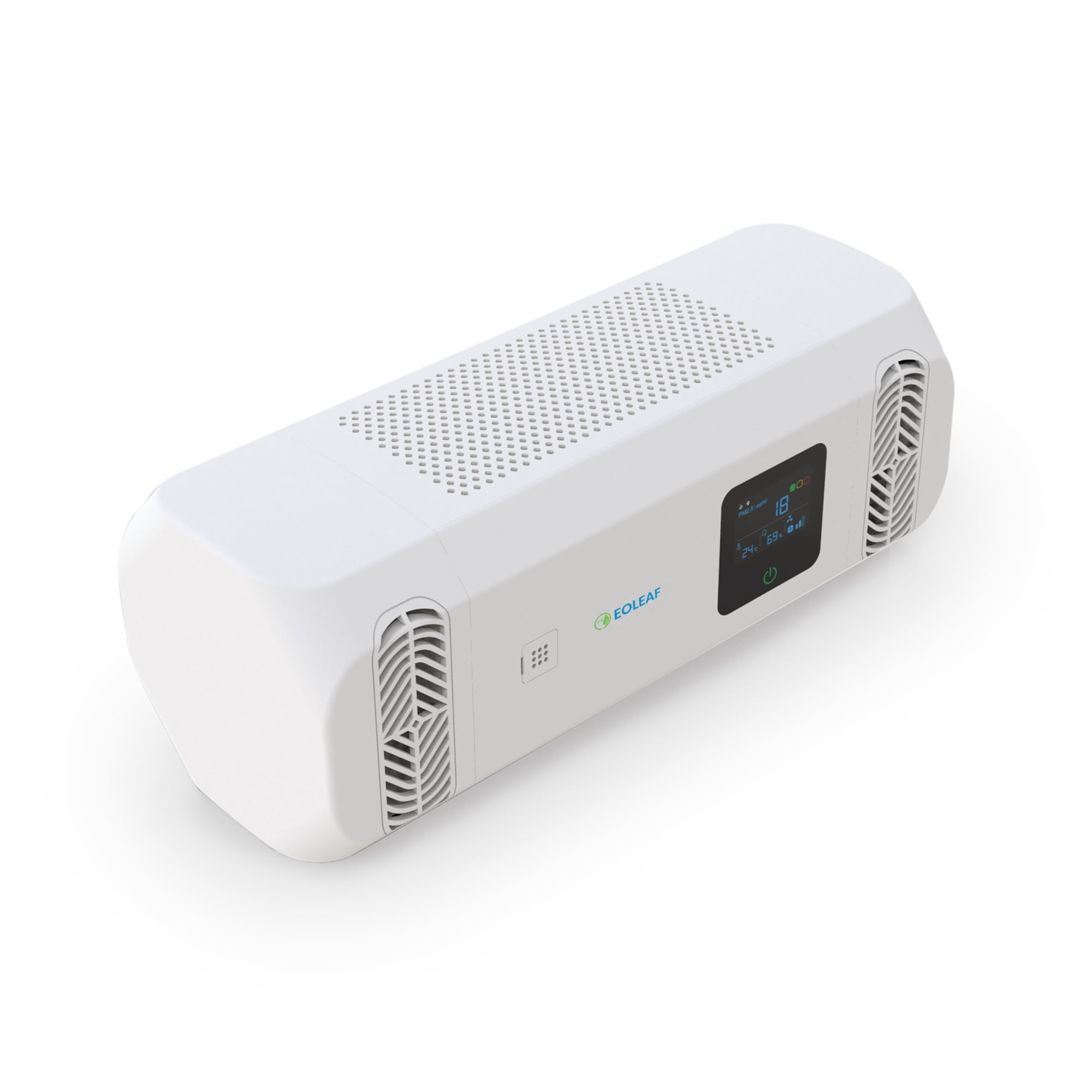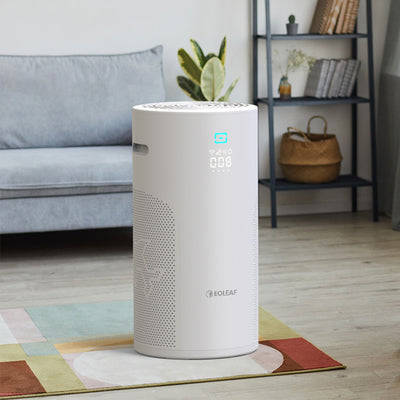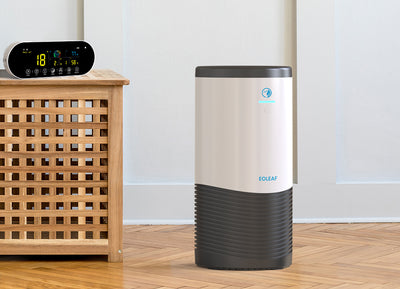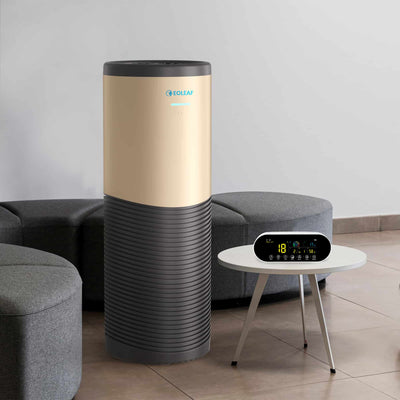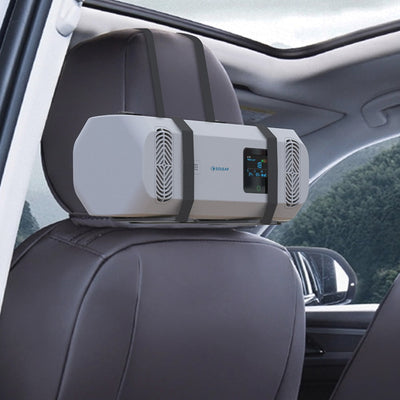Buying an air purifier for hotels
Hotels are a hotspot for poor indoor air quality. Not only are many hotels located in urban areas or near motorways where fine particle pollution concentrations are high, but they are also a place where people congregate, putting hotels at significant risk for pathogen transmission. These factors, among others, put hotel guests at high risk of negative health effects. What, exactly, are the risks? Can hotels protect guests with a professional air purifier for hotels? Read on to learn more.

Air quality in hotels
Awareness of the problems associated with poor indoor air quality has been building since before the COVID-19 pandemic. Now, more and more people understand that indoor air pollution is associated with a host of detrimental health risks.
Hotels: a high-risk area for viral and bacterial transmission
Hotels, like all indoor spaces, suffer from certain factors that make it easy for viruses and bacteria to proliferate. First of all, similar to in our homes or office spaces, humans spend 90% of their time indoors. This is equally the case when guests stay in a hotel. Also similarly to all other indoor spaces, hotel air is significantly more polluted than outdoor air, often upwards of 8 to 10 times more polluted.
In a hotel, the most germ-contaminated surfaces include:
- Luggage cart handrails
- Elevator buttons
- The front desk
A 2023 study found that, once touched, germs from these high-touch locations are transferred to guests’ fingertips within one hour’s time in 60% of instances. 9 out of 10 times, guests then track those germs around the hotel when they touch door handles, TV removes, and light switches. Once a person becomes infected with these germs, it is easy for them to be spread through the air (aerosols) when a person talks, sneezes, coughs, breathes, eats (in a hotel restaurant, for example), or sings, creating a superspreading event1.
The COVID-19 pandemic is likely to have lasting effects on all consumer markets, especially in hospitality, leaving people feeling less at ease about staying in places where people congregate. Since COVID-19 is transmitted through infected aerosols dispersed in the air, indoor air quality (IAQ) is a crucial consideration for hotel guests. Not being able to know who stayed in the hotel room beforehand and IAQ being at the mercy of the hotel are two reasons causing hotel guests to feel uneasy. A survey conducted in 2021 during the COVID-19 pandemic found that 40% of people surveyed would be more likely to stay in a hotel equipped with a professional air purifier2.
Buying an air purifier for hotels
-
Discreet and elegant design
-
Quiet yet powerful (up to 670 m3/hr)
-
Easy to use (equipped with Automatic mode) and does not require installation or assembly
-
Can be placed anywhere in your space thanks to our 360° technology
-
Can be controlled remotely via smartphone app
-
Smart and customisable devices (smart scheduling, automatic power off/on, etc.)
-
Real-time air quality data
-
Filters 99.97% of pollutants using unique and innovative filtration technologies
Sources of air pollution within a hotel establishment
Indoor air pollution may have many sources inside a hotel. Hotel policy varies from hotel to hotel, with some allowing pets and some even still allowing smoking. Pet dander brought from home or from having a pet in the room, tobacco (cigarettes and cigars), marijuana, and e-cigarettes (vaping) from previous guests may all leave their mark on a hotel room and even adjoining rooms. Pet dander, in addition to causing unpleasant odours, may lead to allergies and trigger asthma attacks in those who are vulnerable.
Second-hand and third-hand cigarette smoke
Second-hand and third-hand cigarette smoke cause serious problems in hotel rooms. Studies show that the impact on health caused by second-hand and third-hand smoke are just as serious as those caused by first-hand smoke. Cigarette smoke contains over 250 harmful chemicals (including volatile organic compounds, or VOCs, and even substances that are radioactive!), many of which fall under the category of ‘fine particles’. Most tobacco particles measure between 0.3 to 0.5 microns in size but some nanoparticles measure as small as 0.1 microns3. Third-hand smoke, also known as the residue left on surfaces long after a cigarette is extinguished, can be very difficult to remove, sometimes even requiring replacing carpets and furniture entirely in both the home and professional spaces.
Shisha pipes, another form of tobacco consumption, are becoming more of a concern in hotels as well. Growing in popularity, shisha pipes leave behind many of the same toxic particulates, gases, and chemicals left by cigarette smoke. Like cigarette smoke, it is difficult to remove from soft furnishings and fabrics.
Cannabis smoke
Cannabis smoke contains significant amounts of particulate matter (PM). Studies have even established that cannabis smoke releases PM2.5 concentrations that are 10 times higher than those measured during ‘orange sky days’ caused by Sahara desert dust and wildfires4.
E-cigarettes
Traces of vaping left in hotel rooms by previous customers also has its impact on health. One study found that e-cigarettes have the same negative physiologic effects that regular cigarettes do. Breathing in e-cigarette vapour exposes a second-hand smoker to nicotine, nitric oxide, volatile organic compounds (VOCs) like formaldehyde, and dangerous additives, to name a few5.
Odours and allergens
In addition to the odours mentioned above, hotels may experience other unwanted smells and exposure to allergens that may lead to an impact on hotel customers’ comfort. Some may include odours released by cleaning agents used by janitorial staff (which release VOCs and chemical pollution), mould and mildew, water damage, and/or renovation/restoration. For hotel rooms that are equipped with kitchens, kitchen drains and cooked food from previous guests may also remain present for lengthy periods of time.
Many hotel rooms may also experience the accumulation of dust, both airborne and on surfaces, especially those not regularly used by guests: on top of the television, on shelves, on the headboard of the bed, and in the bathroom. Dust mites may also be found in bed sheets, mattresses, pillows, rugs, curtains, and upholstered furniture.

How to improve indoor air quality without having to refurbish your entire facility
Unfortunately, it will be difficult to achieve improved indoor air quality without investing in either improved ventilation or air purification. Regular ventilation is a requirement in indoor spaces if you want to keep indoor air pollutant concentrations at safe levels. The best way to do this is by regularly opening windows to push out stale air and circulate fresh air. Many hotel rooms have windows that cannot be opened, however, making this impossible.
Relying on the hotel’s HVAC system is the next course of action, but if the HVAC system is not blowing clean air, air quality will continue to be poor. During the COVID-19 crisis, many HVAC systems, especially those that were not regularly maintained or contained proper filtration, were suspected of dispersing germs into the air.
This is where an Eoleaf air purifier comes in. Do keep in mind that even with an air purifier installed, regular ventilation is always recommended, but an air purifier will help clear the air of dangerous air pollutants when sufficient ventilation is impossible.
The benefits of purifying a hotel’s indoor air
Boost customer satisfaction and loyalty
During health crises like the COVID-19 pandemic, hotel customer health and safety is and should be at the forefront. Removing harmful pollutants from the air significantly benefits guest well-being and boosts customer loyalty. Combat viruses and bacteria (as well as their transmission), odours, allergens like dust particles, pet hair and dander, pollen, chemical pollution like VOCs, and fine particle pollution with one convenient device. This helps keep guests comfortable and reduce unpleasant symptoms caused by indoor air pollutants. A professional air purifier for hotels also helps drive away foul odours that keep guests from returning.
Multiple studies have shown that removing air pollution from indoor spaces helps promote better sleep6,7. Sleep quality is already a real problem amongst many hotel customers, so encouraging improved sleep cycles is another excellent way to keep customers coming back.
Protect hotel staff and reduce absenteeism
Hotel guests are not the only ones who benefit from improved indoor air quality. In fact, hotel staff who frequent hotels on a daily basis are the ones who are exposed to indoor air pollution more than anyone else. Indoor air pollution has been shown to impact a worker’s productivity and level of focus, and combatting polluted air helps foster a healthier work environment8,9. Furthermore, like guests, filtered indoor air helps safeguard building managers and hotel operators from pathogens, reducing the risk of sick leave and improving hotel staff well-being.

Boost your establishment’s image and competitive advantage
Investing in improved indoor air quality encourages hotel guests’ loyalty and confidence. When faced with the decision to choose between a hotel offering rooms with clean air and one that does not, providing clean air will give a leg up on the competition.
Wellness is of growing importance in the hospitality industry. Customers who are particularly concerned with germ spread from viruses and bacteria, hygiene, allergies, asthma, and/or the negative effects of air pollution in general will choose a hotel with filtered air every time. This is especially true in a post COVID-19 pandemic world where masks and social distancing are all still fresh in our minds. Building customer loyalty through hotel air quality management will improve a hotel’s rankings and enable them to reoccupy rooms more quickly.
Save on energy costs
Instead of investing in a massive overhaul of a hotel’s ventilation system, installing air purifiers is a more cost-effective way of improving indoor air quality (IAQ). High-quality air purifiers that use energy-efficient air filters are designed to consume very little energy. When energy usage and air conditioning make up 15 to 20% of a hotel’s costs, an air purifier is a good investment.
How to choose the best air purifier for hotels?
NeoPur 400 air purifier
40 m² (450 sq ft) coverage area - Smart & Connected
TeraPur 600 air purifier
80 m² (850 sq ft) coverage area - Ultimate all-in-one
AltaPur 700 air purifier
120 m² (1300 sq ft) coverage area - Professional model
Eoleaf’s multi-layer filtration technology
When choosing an air purifier for hotels, seek out devices that offer not just one air filtration technology, but multiple. This will ensure that your device will trap all types of air pollution. Eoleaf’s air purifiers offer 8 different steps of filtration including a medical-grade HEPA H13 filter, guaranteeing filtration of 99.97% of particles down to a size of 0.01 microns in a single pass.
Our devices also come equipped with activated carbon filters which fight against VOCs (the one type of air pollution not targeted by HEPA filters) and unpleasant odours. Additionally included in our medical-grade filtration process is pre-filtration, ionisation, UVC sterilisation, and photocatalysis, each of which is designed to target specific types of air pollutants.

Consider the hotel’s floor space
Air purifiers are designed to filter all of the air in spaces of a maximum size. When choosing a hotel air purifier, be sure that the device is properly sized! Hotel rooms will have different sizing requirements than large dining areas or lounges. Eoleaf air purifiers offer three different sizing options:
- NeoPur 400: 0 to 40 m2 (450 square feet), ideal for small- to medium-sized hotel rooms
- TeraPur 600: 0 to 80 m2 (850 square feet), best for larger hotel rooms
- AltaPur 700: 0 to 120 m2 (1300 square feet), our largest and most powerful air purifier that is perfect for large areas/spacious rooms in a hotel like banquet halls, dining areas, hotel restaurants, lounges, etc.
One thing to confirm is that your devices offer a high Clean Air Delivery Rate (CADR). CADR is used to measure an air purifier’s performance and efficiency at removing airborne pollutants from your indoor air. The higher the number, the better!
Choose according to different rooms’ needs
As mentioned above, a hotel has many different types of rooms with very different needs. This should be kept in mind when choosing an air purifier for hotels. It is ideal to find one that blends into any environment, varying from hotel restaurants to sanitary facilities and changing rooms, for example. It should also be easy to move in case needs in certain rooms change: this is why Eoleaf’s devices come equipped with either handles or wheels for easy movement.
Consider noise level
Yet another crucial factor to consider before purchasing an air purifier for hotels is how much noise it makes! Finding a quiet, whisper-silent air purifier that will not disturb customers and guests whilst they sleep, work, and relax is essential.
Consider energy efficiency
As seen above, 15 to 20% of a hotel’s costs come from its energy usage. As such, it is extremely important to keep this in mind when investing in and installing air purifiers for hotels. If the goal is to equip dozens or even hundreds of rooms, energy efficiency is a worthy consideration! High-quality air purifiers like Eoleaf’s consume less electricity, even when left running on a 24-hour basis.
The Eoleaf difference
Eoleaf air purifiers offer the very best technologies available on today’s air purification market. Our devices cater to diverse needs in both individual and professional sectors, and our team of air purification experts is here to help with any question you may have! Feel free to reach out anytime. We have also created an in-depth Buying Guide to assist you in making your choice.

Frequently asked questions
How do air purifiers impact the overall guest experience in a hotel?
By removing indoor airborne pollutants, air purifiers may help guests sleep better, work better, and rest better. Indoor air pollution impacts all of these activities, and combatting pollutants is a great way to improve guest experience in a hotel.
What is the cost of installing and maintaining air purifiers in a hotel?
Air purifier pricing varies significantly depending upon the technologies and options offered by the device. The initial cost of a quality air purifier will cost anywhere from £400 to £3000. Costs of replacement filters also vary with some low-quality filters requiring replacements three to four times a year, a budget that quickly adds up. Eoleaf devices have high-quality filters that only require replacing once a year.
How often should air purifiers be serviced or filters replaced in a hotel setting?
Regardless of the model, air purifiers all require filter replacements. This is crucial for the regular maintenance of your device – if filters are not replaced on a regular basis but the device continues to be used, it can actually release pollutants back into your indoor air and become a health hazard! Some air purifiers require replacements three to four times a year, whereas Eoleaf’s devices only require replacements once a year.
Can air purifiers reduce the spread of odours and smoke in hotel rooms?
Some, but not all, of them can. Air purifiers equipped with activated carbon filters are designed to trap airborne odours. Similarly for smoke, only air purifiers that are equipped with HEPA-certified filters (note: not ‘HEPA-type’) filter fine particles produced from cigarette, cannabis, and other types of smoke.
Do air purifiers improve the indoor air quality in hotel common areas like lobbies and conference rooms?
They definitely do! However, the device must be properly sized for a larger room. Eoleaf’s AltaPur 700 is perfect for a space of this size, fully filtering the air in rooms up to 120 m2 (1300 square feet).
Is it OK to sleep in a room with an air purifier?
Absolutely! Air purifiers are designed to be used throughout both the day and night. An air purifier that is quiet, or near-silent, will not wake you throughout the night but will still continue to filter your air.
Resources
1 Jenns, C. (2023, May 24). Research reveals how germs can spread in hotels. Hotel Management Network. https://www.hotelmanagement-network.com/news/research-germs-spread-hotels/?cf-view
2 Kilburn, H. (2021, March 8). Nearly half of Brits surveyed expect Air Purifiers in tomorrow’s Hotel. Hotel Designs. https://hoteldesigns.net/industry-news/nearly-half-of-brits-surveyed-expect-air-purifiers-in-tomorrows-hotel/
3 4 How to choose the best air purifiers for removing tobacco smoke. BreathingSpace.co.uk. (2022). Retrieved November 11, 2022, from https://www.breathingspace.co.uk/how-to-choose-the-best-air-purifiers-for-removing-tobacco-smoke-i97
4 Nguyen PK, Hammond SK. Fine Particulate Matter Exposure From Secondhand Cannabis Bong Smoking. JAMA Netw Open. 2022;5(3):e224744. doi:10.1001/jamanetworkopen.2022.4744
5 Vardavas, C. I., Anagnostopoulos, N., Kougias, M., Evangelopoulou, V., Connolly, G. N., & Behrakis, P. K. (2011). Short-term pulmonary effects of using an electronic cigarette. Chest, 141(6), 1400–1406. https://journal.chestnet.org/article/S0012-3692(12)60327-4/fulltext
6 Liu J, Wu T, Liu Q, Wu S, Chen JC. Air pollution exposure and adverse sleep health across the life course: A systematic review. Environ Pollut. 2020 Jul;262:114263. doi: 10.1016/j.envpol.2020.114263. Epub 2020 Feb 24. PMID: 32443219; PMCID: PMC7877449.
7 Yu H, Chen P, Paige Gordon S, Yu M, Wang Y. The Association between Air Pollution and Sleep Duration: A Cohort Study of Freshmen at a University in Beijing, China. Int J Environ Res Public Health. 2019 Sep 11;16(18):3362. doi: 10.3390/ijerph16183362. PMID: 31514480; PMCID: PMC6766077.
8 Harvard University. (2021, September 9). Office air quality may affect employees’ cognition, productivity. T.H. Chan School of Public Health. https://www.hsph.harvard.edu/news/press-releases/office-air-quality-may-affect-employees-cognition-productivity/
9 Le D, Li Y, Ren F. Does air quality improvement promote enterprise productivity increase? Based on the spatial spillover effect of 242 cities in China. Front Public Health. 2022 Nov 25;10:1050971. doi: 10.3389/fpubh.2022.1050971. PMID: 36504993; PMCID: PMC9732380.
Eoleaf's range of air purifiers
NeoPur 400 air purifier
40 m² (450 sq ft) coverage area - Smart & Connected
TeraPur 600 air purifier
80 m² (850 sq ft) coverage area - Ultimate all-in-one
AltaPur 700 air purifier
120 m² (1300 sq ft) coverage area - Professional model
PurCar air purifier
HEPA H13 Filter & Ioniser - For all vehicles

